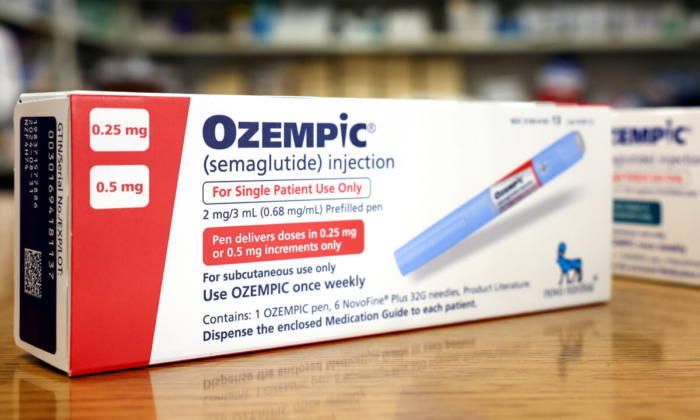More than 40 percent of the online pharmacies that claim to sell weight loss drugs such as Ozempic are illegal operations, with some defrauding customers by failing to deliver the promised products, according to a peer-reviewed study. During their analysis, researchers identified 317 online pharmacies through search engine monitoring. More than 42 percent (134 websites) were deemed to be illegal operations.
Two of the websites analyzed had received warning letters from the U.S. Food and Drug Administration (FDA) for “unlawful sale of unapproved and misbranded semaglutide.

” The researchers bought semaglutide products from six vendors that were classified as “not recommended” or “rogue” by authorities. Out of the six vendors, three of them fulfilled the orders. The remaining three “engaged in nondelivery scams requesting extra payments [ranging from $650 to $1200] to purportedly clear customs, confirmed as fraudulent by customs agencies,” the study noted.
Researchers checked the three semaglutide test products against the International Pharmaceutical Federation’s checklist to assess their quality and purity. Out of the potential full 22 points, the three items only scored 8 or 9. These products had “clear discrepancies in regulatory registration information, accurate labeling, and evidence products were likely unregistered or unlicensed.
” One sample was found to contain an “elevated presence” of endotoxins, a bacterial component, suggesting potential contamination. While all samples had semaglutide, the purity levels were “considerably lower.” In addition, the semaglutide content substantially exceeded the labeled amount by 29–39 percent, meaning people who used the items likely injected themselves with higher amounts of semaglutide than what they were led to believe.
“These risk factors indicate likely falsification that does not meet legitimate product quality standards.” The counterfeit item was found to contain another type of diabetes medication called insulin glargine injection that “reportedly led to an adverse reaction,” the company said. Last year, many agencies around the world issued warnings about fake semaglutide products being sold.
On Oct. 18, the European Medicines Agency (EMA) issued an alert about fake Ozempic pens identified at wholesalers in the European Union and the United Kingdom. Meanwhile, compounded semaglutides are also posing a health risk.
Compounding is the process of combining or altering ingredients to create medications tailored to individuals. Compounded drugs are not approved by the FDA. The FDA attributed several overdoses to dosing errors made by customers.
“Many of the patients who received vials of compounded semaglutide lacked experience with self-injections, according to the adverse event reports,” it said. “Unfamiliarity with withdrawing medication from a vial into a syringe and coupled with confusion between different units of measurement (e.g.
, milliliters, milligrams, and units) may have contributed to [a] dosing error.”.

















